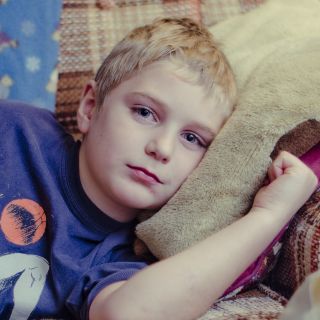Adverse Childhood Experiences
How to Prevent Mental Illness in Victims of Trauma and Abuse
Why only some victims of childhood adversity develop mental illness.
Posted October 6, 2023 Reviewed by Monica Vilhauer Ph.D.
Key points
- Childhood adversities (e.g., poverty, emotional abuse) are risk factors for psychological disorders.
- Compared to objective instruments, subjective measures are more predictive of mental illness.
- Therapies that modify the subjective experience of survivors of adversity may prevent mental health problems.

Consider different groups of children who have experienced adversities, be it extreme poverty, a parent’s death, maltreatment, physical or sexual abuse, or bullying.
If you were to predict which groups will develop a psychological disorder, would you rely on subjective self-reports? Or on objective evidence, such as information obtained from multiple informants, crime records, and reports from child protection agencies?
At first glance, the second type of information may appear more accurate and reliable. But is that true?
Published in the Journal of Child Psychology & Psychiatry, a recent review by Francis and colleagues from the UK concludes that the effects of childhood adversity on mental illness are driven mainly by subjective experience.
The study and its implications are discussed below.
Investigating childhood victimization and mental illness
Sample and methods: Data came from 22 investigations (n = 18k) that used objective and objective assessments of childhood adversities. The sample’s average age was 15 years, and 51% were female.
Additionally, the researchers used data from 17 investigations (n = 15k) on the correlation between objective/subjective measures and the development of psychological disorders. Average age was 14 years, and 54% were female.
The selected studies focused primarily on child maltreatment. A smaller number focused on bullying victimization and neighborhood stressors (e.g., poverty, crime, violence).
Results:
One, objective and subjective measures of childhood adversity were only moderately correlated.
Two, whereas objective measures of childhood adversity had no or minimal correlations with mental illness, subjective ones had significant correlations with mental illness.
Subjective and objective measures agreed most strongly in cases of sexual abuse. Why? Perhaps this was due to sexual abuse being more clearly defined than other adversities such as neglect or psychological and emotional abuse.
Summary and implications
The experience of childhood adversities and maltreatment is associated with the development of mental illness, but not always. Subjective experiences (e.g., perceptions, memories, beliefs) may be the key difference between those who develop psychological disorders and those who do not.
Indeed, a previous study of maltreated children found, “Even in the most serious cases identified based on court records, the risk for mental illness appeared minimal in the absence of a subjective appraisal.”
Simply put, how one perceives, interprets, and remembers stressful childhood events may be a greater predictor of mental illness in adulthood than a documented history of childhood neglect.
There is however a silver lining: Though it is impossible to change terrible things that have already occurred, it may be possible to change how one thinks about these traumatic events such that they lose their power—no longer distorting our beliefs about ourselves, others, and life in general.
Therapy is one way to do that.

Psychotherapy for childhood abuse and trauma
If you experienced childhood neglect, physical abuse, bullying, or loss of a parent, you may have developed negative schemas and core beliefs like: “The world is a dangerous place,” “people are untrustworthy," “I am unlovable,” and “I am powerless.”
Not surprisingly, such thoughts are associated with an increased risk of developing psychological disorders (e.g., anxiety, depression, PTSD), since what we believe affects our expectations, feelings, and behaviors.
Research shows that many of the evidence-based psychological therapies studied help survivors of childhood adversities feel better about themselves and live happier and richer lives. Two of the more effective treatments are cognitive behavioral therapy (CBT) and eye movement desensitization and reprocessing therapy (EMDR).
So, if your past continues to haunt you, therapy can help. Give it a try.
To find a therapist, visit the Psychology Today Therapy Directory.




